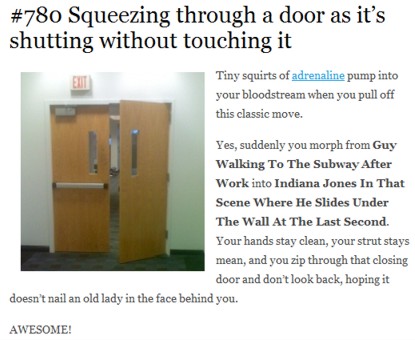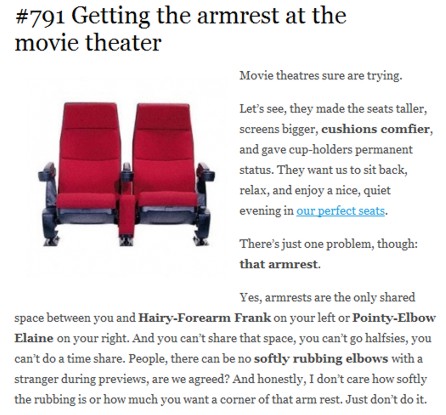Here’s something that made me smile – the comedian, Louis CK, talks about how we take technology for granted.
[youtube=http://www.youtube.com/watch?v=jETv3NURwLc]
As Louis CK says, ‘those were simpler times’ when we had little of the technological possibilities we have now. I think we’re all guilty of taking new technology for granted. I still remember the dial phone, and yes, the zeros took ages to come back. One of our phones had a dial that used to get stuck and you had to help it back. Bad luck if you wanted to phone in quickly to be first caller for something. There are so many things that have been developed since I was born, it’s embarrassing. My boys find it hard to believe that when I was their age there were no microwaves(at least not in my part of the world). Definitely no mobile phones. We used to think we were lucky that a friend worked for the telephone company and gave us a couple of phones so we could have them in different rooms. When I was in primary school, we were one of the first families in our circle of friends to have a remote control for the TV. Some people would say, why do you need a remote? Why can’t you just get up and change the channel? Who would say that now? I used to think that mobile phones were an unnecessary luxury, and now I have a fit if I’m out without my phone. How happy I was when I used an electric typewriter with a corrector ribbon! How frustrated I am when my webpage takes too long to load.
But, as Louis CK says, we’re quick to get frustrated with technology without giving a thought to how incredible it is. I think that’s human nature. We get used to new technologies so quickly, and we complain about what’s not working, but we don’t often extol the virtues of our machines. Are we basically negative in our perceptions and reactions?
It’s funny to read Top 30 failed technology predictions. Some of my favourites are:
“There is no reason anyone would want a computer in their home.” — Ken Olson, president, chairman and founder of Digital Equipment Corp. (DEC), maker of big business mainframe computers, arguing against the PC in 1977.
“A rocket will never be able to leave the Earth’s atmosphere.” — New York Times, 1936.
“Flight by machines heavier than air is unpractical (sic) and insignificant, if not utterly impossible.” – Simon Newcomb; The Wright Brothers flew at Kittyhawk 18 months later.
“The energy produced by the breaking down of the atom is a very poor kind of thing. Anyone who expects a source of power from the transformation of these atoms is talking moonshine.” — Ernest Rutherford, shortly after splitting the atom for the first time.
“The cinema is little more than a fad. It’s canned drama. What audiences really want to see is flesh and blood on the stage.” -– Charlie Chaplin, actor, producer, director, and studio founder, 1916
“The Americans have need of the telephone, but we do not. We have plenty of messenger boys.” — Sir William Preece, Chief Engineer, British Post Office, 1878.
“Home Taping Is Killing Music” — A 1980s campaign by the BPI, claiming that people recording music off the radio onto cassette would destroy the music industry.
“Television won’t last. It’s a flash in the pan.” — Mary Somerville, pioneer of radio educational broadcasts, 1948.
Here’s a funny one:
“Rail travel at high speed is not possible because passengers, unable to breathe, would die of asphyxia.” — Dr Dionysys Larder (1793-1859), professor of Natural Philosophy and Astronomy, University College London.
It’s easy for us to laugh at these in retrospect, but what kinds of things are we saying today? I’m particularly interested in critical or sceptical things we say about technology in education. I’m hearing things like
- we have the intranet so we don’t need to ‘go out’
- mobile phones have no educational use and should be banned
- computer games are a waste of time and should be banned
- social networking, like Facebook, is a waste of time and has no educational value
- I do all my professional reading in peer-reviewed journals; why would I want to read blogs?
- Twitter is used by people to say superficial and unnecessary things
When we say these things we are making a major mistake, and that mistake is based on the fact that we are thinking in terms of our world, not the world of our students, and definitely not the world of the future. Currently in education there is a significant pull away from Web 2.0 technologies. We can’t stop these things by banning them or criticizing them. We can try to understand what draws our students into these applications. What motivates them to create online games, get involved in Second Life, join Flickr groups, write blogs – become engrossed in things outside of school in a way we didn’t think was possible in school. I think that we, as educators, should seriously think about what kind of world our students will be living in once they leave school. Whatever the answer to that is, it won’t be our world.
We should be interested in what young people are doing outside of school because it may help us understand how to engage them at school.
[youtube=http://www.youtube.com/watch?v=0fu4vmiXxwc&feature=player_embedded]


